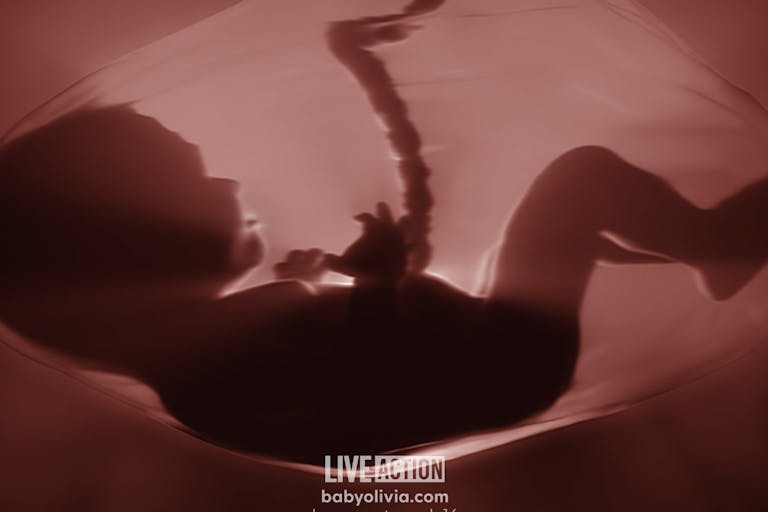
Judge denies anonymity for victim of forced abortion
Cassy Cooke
·
Abortion advocates fear artificial wombs could hinder the ‘right’ to end preborn lives
Scientists behind the invention of artificial wombs say the technology could someday serve to protect premature babies, providing them with an environment more like their mother’s womb so they can continue to develop safely. Yet, as with any technology created with good intentions, it holds the potential to be abused. But rather than expressing concern for the preborn children who will be most affected by this technology, abortion advocates are worried that artificial wombs will decrease abortion access and expose the fact that “bodily autonomy” isn’t their biggest concern. To them, preborn children are property to be owned, not human beings with rights.
Ending a pregnancy vs. ending a life
According to pro-abortion media, ectogenesis — the process of gestating babies in an artificial environment — is threatening the bodily autonomy that abortion advocates argue justifies abortion. Luara Ferracioli, an associate professor of political philosophy at the University of Sydney, explained, “Some scholars have suggested the ectogenesis will threaten the underpining of the legal right to abortion.”
“If gestation could take place outside the body, then perhaps a woman only has a moral right to end the natural gestation, not to end the life of the foetus,” she told ABC RN’s Big Ideas podcast.
The ability to end a pregnancy with a living baby without intentionally killing the child already exists. Surgery for ectopic pregnancy, preterm delivery, and emergency C-sections are already being carried out daily in the U.S. and none are considered abortions legally speaking. Each procedure ends a pregnancy but none carries the intention of ensuring the child is dead through the deliberate act of induced abortion. There is a vast difference between ending a pregnancy and deliberately ending a life.

Preborn humans as persons
Ferracioli isn’t alone in believing that it would be detrimental to a woman to lose the ability “to end the life” of her baby.
Catherine Mills, professor of bioethics at Monash University, fears “there could be a stronger pressure to use a technology, like an artificial womb, to extend a pregnancy.” She said it remains unclear if the technology will ever be able to work for preborn humans and argues that regardless, preborn humans won’t be able to give informed consent to be moved to an artificial womb because they aren’t persons.
But this is a very weak argument.
“Our clinical trial framework is really set up for participants who are persons… and it’s not yet clear that beings at 22 weeks’ gestation are full persons, in the way that we typically attribute moral status,” she said. Science has proven repeatedly that preborn children are human beings and members of the human family; therefore, they are persons.
Children are unable to consent to any medical procedure or treatment necessary to protect their life or health, but their parents are. The parents of children born too prematurely to survive should have the option of participating in a trial, despite the inability of the children to consent. It isn’t unheard of for children to be enrolled in trials in an attempt to save their health or their lives and this would be no different.
In other words, the claim about “consent” actually has nothing to do with whether or not preborn children can consent to being put in an artificial womb. After all, they certainly can’t consent to being killed in an abortion.
Article continues below
Dear Reader,
In 2026, Live Action is heading straight where the battle is fiercest: college campuses.
We have a bold initiative to establish 100 Live Action campus chapters within the next year, and your partnership will make it a success!
Your support today will help train and equip young leaders, bring Live Action’s educational content into academic environments, host on-campus events and debates, and empower students to challenge the pro-abortion status quo with truth and compassion.
Invest in pro-life grassroots outreach and cultural formation with your DOUBLED year-end gift!
Not even all born human beings can consent to the medical care they need to survive and thrive — but that doesn’t mean they aren’t persons with rights.
In addition, to argue that some humans can “attribute moral status” to other humans is an obsolete notion.
In its Issue Paper regarding consent for the Trafficking in Persons Protocol, the United Nations explained that “no person can consent to slavery, servitude or forced labor. This position reflects a long-standing principle of international human rights law: the intrinsic inalienability of personal freedom renders consent irrelevant to a situation in which that personal freedom is taken away.”
If a human being (person) can’t consent to slavery or forced labor then they can’t consent to being killed, either.
Death vs. life
In an article for Wired, Rosalind Moran and Julie Zhou also argue that the “development of ectogenesis could … wreak havoc on the hard-fought right of women and people with wombs to access safe and legal abortion, and could significantly weaken abortion policies worldwide.”
With the existence of artificial wombs, the baby could continue to develop outside the womb, making it possible for an “unwanted fetus” to live without depriving the woman of her bodily autonomy. But abortion advocates aren’t satisfied. They want the right to end a life — even if that life is no longer in the mother’s womb.
“Given this option,” they argue, “if a woman chooses traditional abortion regardless, the abortion will appear more like an intentional killing.” Well, yes… because that’s what abortion is. Abortion might therefore become less morally or socially acceptable — and abortion advocates don’t want that to happen.
They therefore argue that the woman would still then be a biological mother against her will which would “violate her reproductive autonomy.”
So even if there were technology to end the pregnancy prior to viability without harming the child (which could also help premature infants survive), abortion advocates would oppose the use of that technology because abortion isn’t about bodily autonomy at all. It’s about the desire to not have a living child — even if one has to kill to ensure it.
The abortion industry sees babies and children as property, as commodities, and as non-persons who can be labeled “unwanted” and killed for it. Abortion was never about not forcing a woman to be pregnant — it was always about killing off certain children. Artificial wombs could get in the way of that.
Live Action News is pro-life news and commentary from a pro-life perspective.
Contact editor@liveaction.org for questions, corrections, or if you are seeking permission to reprint any Live Action News content.
Guest Articles: To submit a guest article to Live Action News, email editor@liveaction.org with an attached Word document of 800-1000 words. Please also attach any photos relevant to your submission if applicable. If your submission is accepted for publication, you will be notified within three weeks. Guest articles are not compensated (see our Open License Agreement). Thank you for your interest in Live Action News!

Cassy Cooke
·
Analysis
Cassy Cooke
·
Analysis
Bridget Sielicki
·
Analysis
Cassy Cooke
·
Analysis
Cassy Cooke
·
Analysis
Cassy Cooke
·
Politics
Nancy Flanders
·
Human Interest
Nancy Flanders
·
Issues
Nancy Flanders
·
Human Interest
Nancy Flanders
·
Politics
Nancy Flanders
·